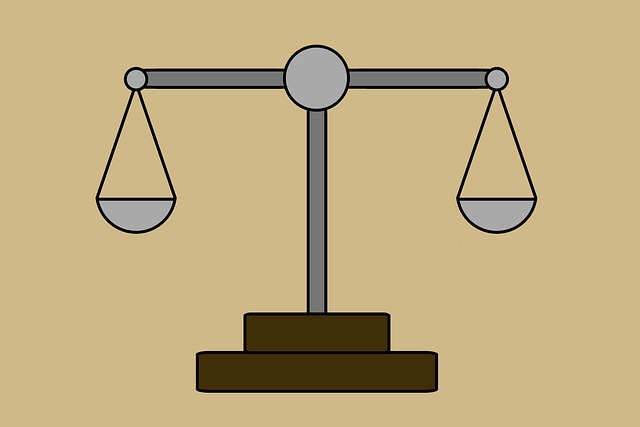Oregon probate attorney fees vary based on case complexity, estate value, and required services. Legal charges can be structured as hourly rates ($200-$500) or flat fees (10%-30% of estate value). Simple estates have lower costs, while intricate cases with disputes or multiple properties may incur higher legal expenses. Hourly rates reflect time spent on tasks like asset valuation and tax issues. Flat fees offer predictability but might not cover complex work. Additional Oregon probate costs include court fees, appraisals, record-keeping, and expert witnesses, requiring careful budgeting.
“Unraveling Oregon’s Probate Attorney Fees: A Comprehensive Breakdown. Understanding legal costs is pivotal when navigating estate administration. This guide delves into the factors shaping fee structures in Oregon probate cases, offering insights into hourly rates, contingency fees, flat fees, and additional expenses. Whether you’re an executor or beneficiary, knowing these costs is essential for making informed decisions. Explore our detailed analysis of Oregon probate costs to ensure transparency and budget effectively.”
- Understanding Oregon Probate Attorney Fees: A Comprehensive Guide
- Factors Influencing Fee Structure in Oregon Probate Cases
- Standard Hourly Rates vs. Contingency Fees in Oregon
- Breaking Down Costs: Flat Fees and Their Pros and Cons
- Additional Expenses and Disbursements in Oregon Probate Proceedings
Understanding Oregon Probate Attorney Fees: A Comprehensive Guide

Understanding Oregon Probate Attorney Fees involves a deep dive into the factors influencing costs, which can vary widely depending on the complexity of the estate and the services required. In Oregon, probate attorney fees are typically structured using one of two models: hourly rates or a flat fee based on the expected workload. Hourly rates range from $200 to $500 per hour, with average fees around $350-$400. Flat fees, on the other hand, can range from 10% to 30% of the total estate value, offering clients predictability but potentially higher costs for larger estates.
This comprehensive guide highlights that Oregon probate costs are not just about legal work. They include time spent on case preparation, court appearances, document filing, and asset distribution. Some common cost drivers include contested claims, multiple beneficiaries, real property ownership, and the need for specialized legal services. Understanding these nuances empowers individuals to budget effectively and make informed decisions regarding estate planning and probate representation in Oregon.
Factors Influencing Fee Structure in Oregon Probate Cases

In Oregon, probate attorney fees are influenced by several factors that can impact the overall cost of estate administration. The complexity of the case plays a significant role; simple estates with straightforward assets and few beneficiaries typically attract lower fees, while intricate cases involving multiple properties, business interests, or contested will provisions may incur higher charges.
The time required to handle the probate process is another determiner. Cases that demand more time for tasks like identifying and valuing assets, dealing with tax issues, or resolving disputes among heirs are usually charged at a higher rate per hour. Additionally, certain services such as preparing legal documents, court appearances, and administration of trust funds may have set fees based on their specific nature and the effort involved. Understanding these factors can help individuals navigate Oregon probate costs more effectively.
Standard Hourly Rates vs. Contingency Fees in Oregon

In Oregon, probate attorney fees can vary significantly depending on several factors, including the complexity of the case and the value of the estate. Legal services in this area are typically charged at either standard hourly rates or through contingency fees. Standard hourly rates mean clients are billed based on the time spent on their case, with fees ranging from $150 to $400 per hour. This approach offers transparency but can be costly for complex cases involving significant assets.
On the other hand, contingency fees are a percentage of the settlement or inheritance received after successful resolution. These fees usually range between 20% and 40% of the total proceeds. While this model may seem less transparent at first glance, it provides clients with a fixed cost structure, eliminating the worry of accumulating high hourly bills. Many Oregon probate attorneys offer contingency fee arrangements, especially for cases involving contested wills or complex estate administration.
Breaking Down Costs: Flat Fees and Their Pros and Cons

Oregon probate attorneys often structure their fees using two primary models: hourly rates and flat fees. Flat fees, a popular choice among legal professionals for probate matters, offer clients a straightforward pricing structure. This means a fixed amount is agreed upon for specific services or the entire process, regardless of the time spent. The advantage lies in budget certainty for clients; they know exactly what they’ll pay from the start. This model also encourages efficiency as attorneys are incentivized to complete work promptly. However, flat fees might not be suitable for complex cases that require unexpected additional efforts.
While flat fees provide cost predictability, hourly rates offer more transparency in tracking expenses. Clients pay based on the actual time spent on their case, allowing for greater flexibility. This approach is beneficial for straightforward probate matters where the scope of work is well-defined. However, it can lead to higher costs if a case becomes more intricate than anticipated. For Oregon probate costs, understanding these fee structures is essential in managing expectations and ensuring financial transparency during what can be an emotional and challenging time.
Additional Expenses and Disbursements in Oregon Probate Proceedings

In addition to attorney fees, Oregon probate proceedings often involve various other expenses and disbursements. These additional costs can include court filing fees, which vary depending on the type of petition filed, and service of process fees for notifying interested parties about the probate administration. Executors or personal representatives may also incur expenses related to administering the estate, such as property appraisals, record-keeping, and accounting services.
Other potential disbursements could involve legal research, expert witness fees if complex issues arise, and costs associated with any necessary litigation. It’s important to note that these additional expenses can significantly impact the overall Oregon probate costs, so it’s crucial for individuals and executors to budget accordingly and consult with their attorneys to understand all potential fee structures.






